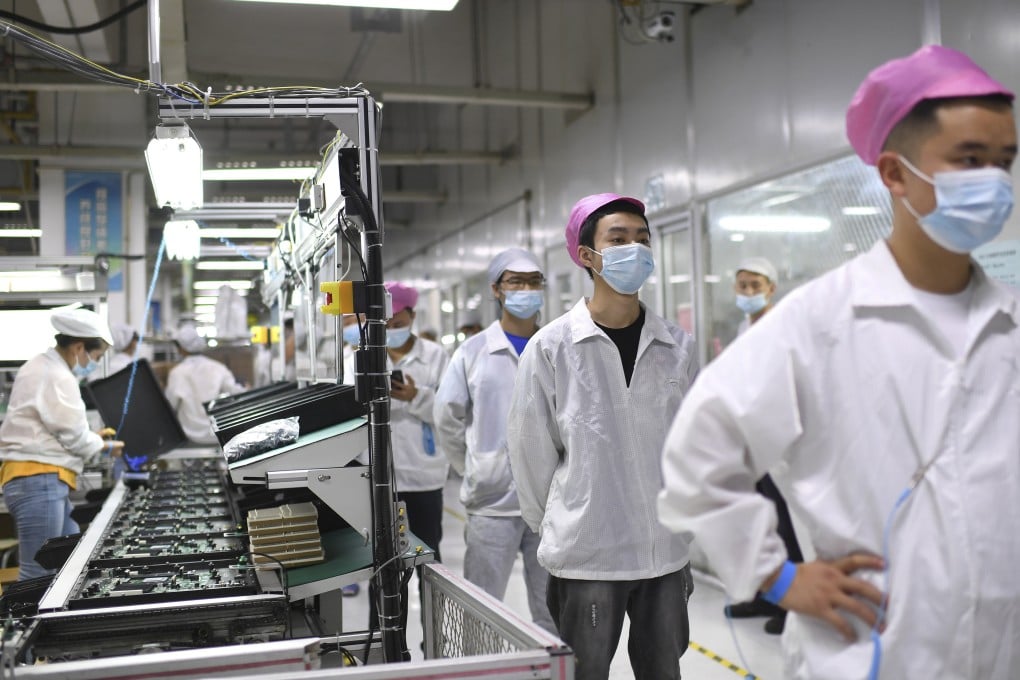Advertisement
Opinion | China’s Covid troubles show why it’s not ready to compete with the US
- Talk of great power rivalry with the US makes China look strong and powerful, but recent unrest at Foxconn’s Zhengzhou factory shows a different narrative
- China is not yet on an equal footing with the US: while it struggles to develop its hi-tech prowess amid US restrictions, it must work hard to protect its vulnerable position in the global supply chain
Reading Time:3 minutes
Why you can trust SCMP
26

As a Chinese person, I sometimes consider the claim China is the biggest threat to the United States flattering. In 2021, even though China’s annual GDP was not too far behind that of the United States, China’s GDP per capita of US$12,556 was far behind the US mark of US$69,287. Also, while the US sent people to the moon in 1969, China only recently completed building Tiangong, its first space station.
Advertisement
Therefore, this great power rivalry that puts China on an equal footing with the US is a compliment. It makes China look strong and powerful.
However, the recent unrest at Foxconn’s Zhengzhou factory has revealed a more realistic narrative. China is not on an equal footing with the US. In fact, to protect its own vulnerable position in the global supply chain, China must support US industries.
Foxconn’s Zhengzhou factory in Henan province is the largest iPhone factory in the world. At the end of October, tensions over strict Covid-19 restrictions began to boil over. Many workers either fled or were put into isolation. The result was a labour shortage and disrupted iPhone production ahead of the Christmas and Lunar New Year holidays.
Amid this crisis, help came from an unexpected source – the Chinese government. Village officials were mobilised and reportedly had to help hire at least one worker from each of their villages. City government officials were urged to join the factory for at least a month. Military veterans were asked to take part in the resumption of production. All efforts were aimed at boosting iPhone production.
Advertisement
The issue is that Foxconn does not manufacture iPhones but only assembles them. According to a teardown of the iPhone 13 Pro Max, the most valuable parts came from American, Japanese and South Korean companies. Foxconn’s job is to put the parts together and ship the final product to the world. As an assembly facility, it offers mostly low-paying jobs.

Advertisement

